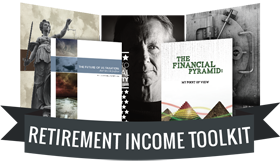But unless you’re careful, all of it will be going to waste.
That’s why a well-crafted estate plan is so critical. It ensures that your hard-earned wealth (including intangible, non-financial assets) can pass intact to those you intend to be your beneficiaries, instead of being siphoned off to government processes and bureaucrats, or even being lost. We all dislike handing over our resources to those who don’t have our best interests in mind.
A well-made estate plan guarantees that this will NEVER happen to your family.
“But, what happens if I don’t create an estate plan? Doesn’t the judicial system have easy steps in place for families?”
Yep, and it’s called “probate” (Latin for “prove the will”), and it’s an ugly process.
You see, “probate” guarantees government interference in how you transfer your estate (however large or small). Documents must be filed and approval must be received from a court to pay your bills, pay your spouse an allowance, and account for your property. Oh, and even worse-it all takes place in the public’s view.
If you fail to plan your estate, not only do you lose the opportunity to protect your family from an impersonal, complex governmental process (that is a burden at best) but it’s slapped across the public domain for all to see.
Then, of course… there are taxes. You think the government is incentivized to keep those low on your behalf? There’s a variety of solutions for each family’s particular situation, but the plain fact is that working without a plan is U-G-L-Y no matter how you slice it.
When it comes right down to it, planning is a gift for your family (the people you love most) because if you don’t take care of things while you are living and able, they’ll have a mess to clean up when you are gone.
Even more, if you have children, you want to establish the proper (legal) procedure for ensuring they’re taken care of properly.
So if these issues are important to you (and I believe they are), make your tax preparation appointment with us count twice, and we can set you up with how to get this process started right.
